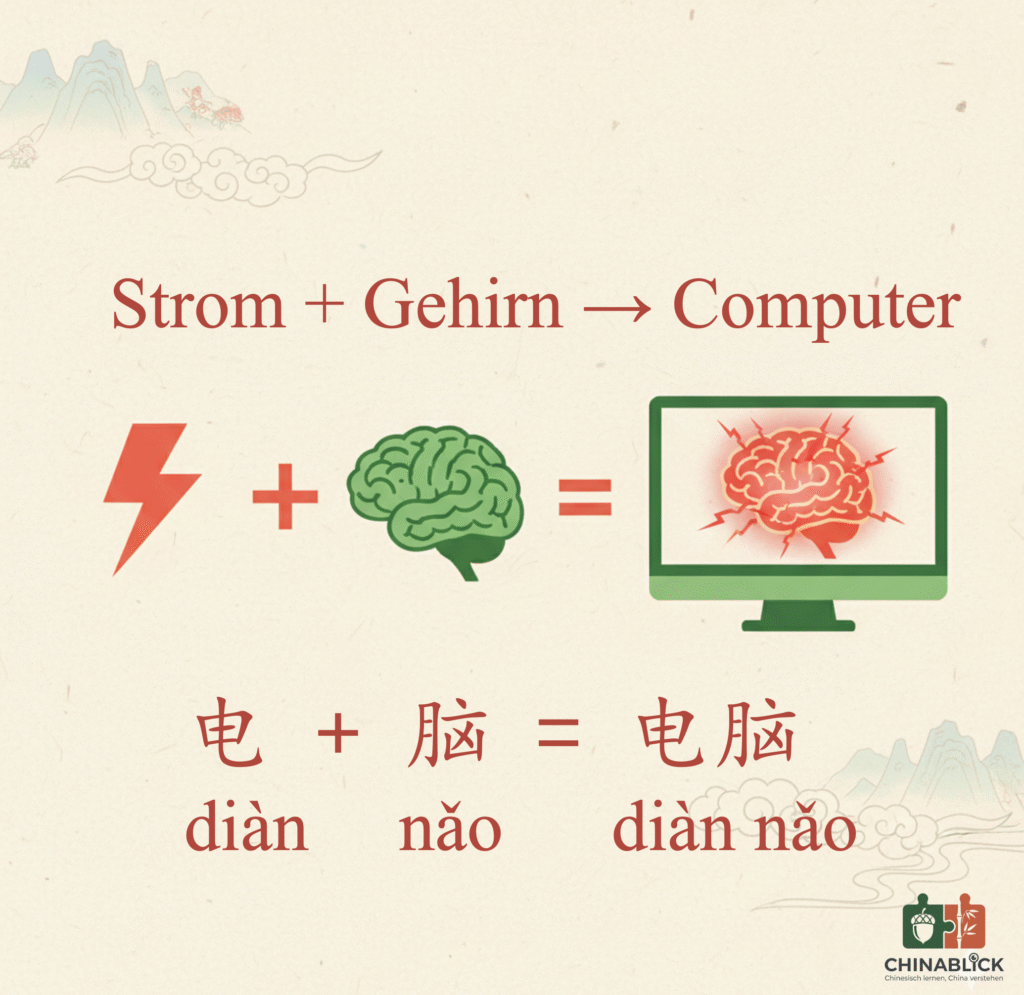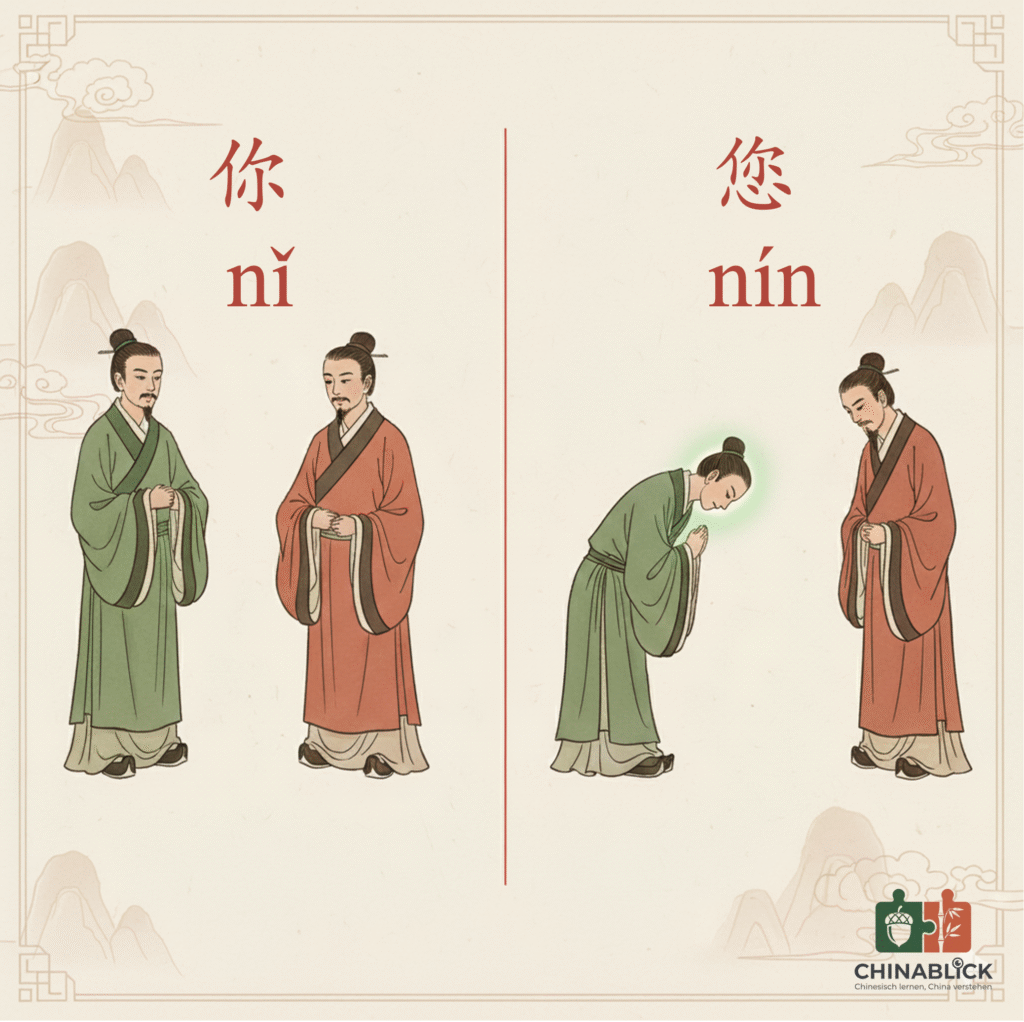When many people hear the word “Chinese,” their first reaction is often:
Way too hard! Totally different!
But is that really true?
Look a little closer — and you’ll find that German and Chinese actually share some surprising similarities. Once you discover these little secrets, Chinese suddenly feels much less distant, and much more fascinating.
1. Word Order: Ich liebe dich = 我爱你 (Wǒ ài nǐ)
Let’s start with a simple sentence:
- Ich liebe dich.
- 我爱你 (Wǒ ài nǐ).

See that? Exactly the same order: Subject + Verb + Object.
In this sense, German and Chinese are like soulmates.
Irish, on the other hand, says it very differently:
- Tá grá agam duit. Literally: “There is love in me for you.”
Sounds poetic, but not very straightforward.
And now for the paradox: geographically, China is much further away from Germany than Ireland, but in some respects, linguistically, it is much closer!
👉 Mini-Challenge: Say out loud “wǒ ài nǐ.” Congratulations, you’ve just spoken your very first Chinese sentence!
2. The Joy of Compound Words: Handschuh = 手套 (shǒu tào)
One of German’s favorite linguistic hobbies? Compounds! For example:
- Handschuh = Hand + Shoe
- Fußball = Foot + Ball
Chinese works exactly the same way:
- 手套 (shǒu tào) = Hand + Cover → glove
- 足球 (zú qiú) = Foot + Ball → soccer
And of course, Germans love joking about their monster compounds like:
Donaudampfschifffahrtsgesellschaftskapitän.

Chinese also combines words — but in a shorter and often more vivid way.
Example:
- 电脑 (diàn nǎo) = Electric + Brain → computer
Be honest: isn’t that just a bit cooler (and more imaginative) than simply saying “computer”?
3. “du” and “Sie” = 你 (nǐ) and 您 (nín)
In German, there’s a polite difference between “du” and “Sie.”
Chinese has the exact same thing: “你 (nǐ)” is casual, and “您 (nín)” is respectful.
This means Germans instantly understand this cultural nuance — faster than many other learners!

Far on the Map, Close in Language
On the map, China may look very far away from Germany.
But in terms of language? Chinese and German are often much closer than you’d think — sometimes even closer than with our Celtic neighbors.
So next time you say “Ich liebe dich,” remember: you’re also speaking Chinese!
👉 Mini-Challenge: Say out loud “Wǒ ài nǐ”!
And here’s the question: if you could pick one more sentence in Chinese to learn right now, which one would it be?
